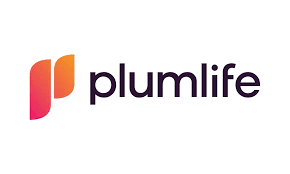state regulated life insurance programs
As an independent insurance agent with Blake Insurance Group, I’ve been getting a lot of questions lately about these so-called “state-regulated life insurance programs” that folks are seeing advertised. Let me tell you, there’s a lot of confusion out there about what these offers really are. I want to clear the air and give you the straight scoop on what’s going on with these mailers and ads targeting seniors in states like Arizona, Alabama, Florida, Georgia, New Mexico, New York, North Carolina, Oklahoma, Ohio, Texas, and Virginia.
First things first—despite how official they might sound, there’s no special government-run life insurance program being offered here. These are clever marketing tactics used by some insurance agencies to generate leads. While the policies they promote might be legitimate burial or final expense insurance, how they’re presented can be pretty misleading.
As someone in this business for years, I believe in giving folks honest, straightforward information about their insurance options. So let’s dive into what’s really behind these offers, what kind of coverage they’re talking about, and how you can protect yourself from potentially deceptive marketing practices. I’ll also share some tips on finding affordable, reliable life insurance coverage that genuinely meets your needs, without any gimmicks or high-pressure sales tactics.








Start a free No Obligation Online smart life insurance quote
- Safe and Secure
- Compare Top Companies side by side
- Free No Obligation Quote Instant
Protecting Yourself from Misleading Offers
 As an experienced insurance agent, I can’t stress enough how important it is to be cautious when you receive those flashy mailers about “state-regulated life insurance programs.” Let me tell you, these offers aren’t always what they seem, and it’s crucial to protect yourself from potentially misleading information.
As an experienced insurance agent, I can’t stress enough how important it is to be cautious when you receive those flashy mailers about “state-regulated life insurance programs.” Let me tell you, these offers aren’t always what they seem, and it’s crucial to protect yourself from potentially misleading information.
First things first, always read the fine print. I know it’s tempting to skip over that tiny text, but that’s where you’ll often find the real story. Most of these mailers will have a disclaimer somewhere, usually stating that they’re not affiliated with any government agency. This is a big red flag that what you’re looking at isn’t some special state-sponsored program but a marketing tactic.
Now, I’m not saying all these offers are scams. Some might be legitimate insurance products. But how they’re presented can be pretty misleading, and that’s not how I like to do business.
If you’re genuinely interested in life insurance, your best bet is to work directly with a licensed agent like myself. We can sit down, have an honest conversation about your needs, and explore options that truly fit your situation. There are no gimmicks, no misleading language—just straightforward advice.
Here’s a tip from my years in the business: if an offer sounds too good to be true, it probably is. Those ultra-low rates you see advertised? They’re often only available to a tiny percentage of people in perfect health. For most folks, the actual rates will be much higher.
Another red flag to watch out for is pressure to buy quickly or switch policies. A reputable agent won’t rush you into a decision. We understand that life insurance is a big commitment, and you need time to consider your options carefully.
Remember, you can always verify an agent’s credentials. Don’t hesitate to ask for a license number and double-check with your state’s Department of Insurance. It’s your financial future we’re talking about, so you have every right to be cautious.
In my experience, the best approach to life insurance is a straightforward, no-nonsense conversation about your needs and options. There are no fancy mailers or “special programs”—just honest advice from a licensed professional who has your best interests at heart.
So next time you see one of those “state regulated” offers in your mailbox, take it with a grain of salt. And if you want to explore your life insurance options without any smoke and mirrors, call an independent agent like me. We’ll eliminate the confusion and find a policy that works for you.
Burial Insurance Basics
As an independent insurance agent, I often encounter questions about burial insurance, especially when people receive those “state regulated” offers. Let’s break down what burial insurance is, how it works, and why it might be a good option for you.
What is Burial Insurance?
Burial insurance, or funeral or final expense insurance, is a type of whole-life insurance designed to cover end-of-life expenses such as funeral costs, burial, and other related expenses. Unlike traditional life insurance policies, burial insurance typically offers smaller coverage amounts, usually from $5,000 to $25,000.
How Does Burial Insurance Work?
When you purchase a burial insurance policy, you choose the coverage you want and designate a beneficiary who will receive the death benefit upon your passing. As long as you pay your premiums, the coverage lasts your entire lifetime. The beneficiary can use the payout for various expenses, including:
– Funeral arrangements (viewing, service)
– Burial costs (interment, casket)
– Cremation costs
– Medical bills
– Outstanding debts
– Legal costs
Types of Burial Insurance
There are several types of burial insurance policies to consider:
– **Simplified Issue**: This type of policy requires you to answer a few health-related questions but does not require a medical exam. It may deny coverage based on certain health conditions.
– **Guaranteed Issue**: No health questions or medical exams are required, making qualifying easier. However, these policies often come with higher premiums and a waiting period before the full death benefit is available.
– **Pre-need Insurance**: This policy involves a contract with a funeral service provider, and the payout goes directly to them to cover specific funeral arrangements you select in advance.
Who Can Get Burial Insurance?
Burial insurance is typically available to individuals between 50 and 85. One of the main advantages is that it doesn’t require a medical exam, making it accessible to those with health issues or pre-existing conditions.
Cost of Burial Insurance
Burial insurance is often considered one of the more affordable types of life insurance, especially for older adults. Premiums can range from as low as $18 to as high as $286 per month, depending on factors like age, health, and the amount of coverage desired.
Benefits of Burial Insurance
– **Easier to Qualify**: No medical exams and minimal health questions make it accessible.
– **Fixed Premiums**: Premiums remain level throughout the policy’s life.
– **Cash Value**: Some policies accumulate cash value that can be borrowed against.
– **Peace of Mind**: Provides financial relief to your loved ones by covering funeral and burial costs.
Working with an Independent Agent
As an independent agent, I can help you compare policies from different insurers to find the most affordable coverage that meets your needs. We’ll consider factors like age, health, and budget to find the best fit. By working with multiple carriers, I can offer you various options and help you navigate the complexities of burial insurance.
Feel free to reach out if you’re interested in learning more about burial insurance or exploring your options. I’m here to provide clear, honest advice and help you find the right policy for your peace of mind.
Top Burial Insurance Companies
When choosing the best burial insurance, it’s essential to consider factors like coverage options, customer satisfaction, and ease of application. Here are some of the top burial insurance companies for 2024, based on various evaluations:
**Mutual of Omaha**
– **Policy**: Guaranteed Whole Life Insurance
– **Age Eligibility**: 45 to 85 (50 to 75 in New York)
– **Medical Exam**: None required
– **Waiting Period**: Two years for full benefits
– **Coverage Amount**: Up to $25,000
– **Pros**: High customer satisfaction, no health questions or medical exams, accessible to a broad age range.
**Fidelity Life**
– **Policy**: RAPIDecision Final Expense
– **Age Eligibility**: Up to 85
– **Medical Exam**: Health questionnaire required
– **Waiting Period**: None for immediate coverage
– **Coverage Amount**: Up to $40,000
– **Pros**: Immediate coverage, affordable rates, no waiting period for full benefits.
**State Farm**
– **Policy**: Final Expense Whole Life Insurance
– **Age Eligibility**: Not specifically advertised
– **Medical Exam**: None required
– **Waiting Period**: Limited payout in the first two years
– **Coverage Amount**: $10,000 to $15,000
– **Pros**: Outstanding customer service, reasonable rates, no medical questions, instant approval.
**Ethos**
– **Policy**: Guaranteed Issue Whole Life Insurance
– **Age Eligibility**: 65 to 85
– **Medical Exam**: None required
– **Waiting Period**: Limited payout in the first two years
– **Coverage Amount**: $10,000 to $25,000
– **Pros**: Instant coverage, full online application, no health questions or medical exams.
**AARP/New York Life**
– **Policy**: Group Life Insurance
– **Age Eligibility**: 50 to 80 (45 to 80 for spouses in most states; 50 to 75 in New York)
– **Medical Exam**: None required
– **Waiting Period**: Limited coverage for the first two years
– **Coverage Amount**: Varies
– **Pros**: Guaranteed acceptance for AARP members, lifelong coverage, low consumer complaints.
**TruStage**
– **Policy**: Guaranteed Acceptance Whole Life Insurance
– **Age Eligibility**: 45 to 49
– **Medical Exam**: None required
– **Waiting Period**: Two years for full benefits
– **Coverage Amount**: Up to $20,000
– **Pros**: No health questions or exams tailored for a specific age group.
**Corebridge Financial**
– **Policy**: Guaranteed Issue Whole Life Insurance
– **Age Eligibility**: Not specified
– **Medical Exam**: None required
– **Waiting Period**: Two years for full benefits
– **Coverage Amount**: Up to $25,000
– **Pros**: Accelerated death benefits for chronic and terminal illnesses at no extra cost.
Comparison Table of Top Burial Insurance Companies
| Company | Policy Name | Age Eligibility | Medical Exam | Waiting Period | Coverage Amount | Pros | Cons |
|---|---|---|---|---|---|---|---|
| Mutual of Omaha | Guaranteed Whole Life Insurance | 45 to 85 (50 to 75 in NY) | None | 2 years | Up to $25,000 | High customer satisfaction, no health questions or medical exams | Limited coverage in the first two years |
| Fidelity Life | RAPIDecision Final Expense | Up to 85 | Health questionnaire | None | Up to $40,000 | Immediate coverage, affordable rates | Requires health questionnaire |
| State Farm | Final Expense Whole Life Insurance | Not advertised | None | Limited in first 2 years | $10,000 to $15,000 | Outstanding customer service, reasonable rates, no medical questions, instant approval | Policies must be purchased through an agent, fewer riders than competitors |
| Ethos | Guaranteed Issue Whole Life Insurance | 65 to 85 | None | Limited in first 2 years | $10,000 to $25,000 | Instant coverage, fully online application, no health questions or medical exams | Limited customization options, not available in all states |
| AARP/New York Life | Group Life Insurance | 50 to 80 (45 to 80 for spouses in most states; 50 to 75 in NY) | None | Limited in first 2 years | Varies | Guaranteed acceptance for AARP members, lifelong coverage, low consumer complaints | Limited coverage in the first two years |
| TruStage | Guaranteed Acceptance Whole Life | 45 to 49 | None | 2 years | Up to $20,000 | No health questions or exams, tailored for specific age group | Limited coverage in the first two years |
| Corebridge Financial | Guaranteed Issue Whole Life Insurance | Not specified | None | 2 years | Up to $25,000 | Accelerated death benefits for chronic and terminal illnesses at no extra cost | Limited coverage in the first two years |
| Aflac | Final Expense Whole Life Insurance | Not specified | Health questionnaire | Limited in first 2 years | Up to $50,000 | Competitive, fixed premiums, builds cash value, flexible payment options | Limited coverage in the first two years, requires health questionnaire |
FAQs Related to State Regulated Life Insurance Program
What is State Regulated Life Insurance?
State-regulated life insurance refers to any policy overseen by the state's insurance department. All life insurance companies must obtain a license from the state to sell their products and ensure they meet specific financial and regulatory requirements.
Is the State Sponsoring These Plans?
No, the state does not sponsor these plans. The term "state regulated" is often used in marketing to imply a level of official endorsement, but these policies are not affiliated with or endorsed by any government agency.
Why Do States Regulate Insurance?
States regulate insurance to protect consumers. This regulation ensures that insurance companies fulfill their promises to policyholders and maintain financial stability to pay out claims.
How Are Insurance Companies Regulated?
State insurance departments regulate insurance companies. To obtain and maintain their licenses, insurance companies must comply with state laws and regulations, including submitting financial information and meeting specific standards.
Will Moving to a Different State Affect My Burial Insurance Policy?
Generally, moving to a different state will not affect your burial insurance policy. However, each state has different laws and regulations regarding burial and funeral insurance, which can influence how your policy is treated after you pass away.
What Does Burial Insurance Cover?
Burial insurance typically covers funeral expenses, burial costs, and other related final expenses. It may also help in settling any outstanding debts.
Are There Affordable Burial Insurance Options for Seniors?
Yes, there are various affordable burial insurance options available for seniors. These policies are designed to fit different budgets and often do not require medical exams, making them accessible to a broader age group.
How Does a Senior Qualify for Burial Insurance?
Most burial insurance plans are accessible to seniors regardless of age or health conditions. Many policies do not require a medical exam, making it easier for seniors to qualify.
Is the State Regulated Life Insurance Program Legitimate?
While the term "state regulated" is technically accurate, it is often used in a misleading way to market life insurance policies. These programs are not unique government-sponsored plans but are standard life insurance policies regulated by the state.
What Should You Do If You Receive a State Regulated Life Insurance Mailer?
If you receive a mailer, verifying the information with a trusted source is best. Contact your local insurance agent or check with your state's insurance department to ensure the legitimacy of the offer. Avoid providing personal information to unknown entities.
Does Social Security Provide Money for Funerals?
Social Security provides a one-time payment of $255 to a surviving spouse or child, but this is not enough to cover full funeral expenses. No other government entity provides comprehensive funeral cost coverage.
How Can I Find Affordable Final Expense Insurance?
To find affordable final expense insurance, compare multiple providers to get the best rates and terms. Working with an independent insurance agent can help you navigate the options and find a policy that fits your needs and budget.
Blake Insurance Group
Phone: (888) 387-3687
Email: [email protected]
Hours: Mon-Fri 9:00 am to 5:00 pm
Sat-Sun: Closed

Blake Nwosu
Owner & Principal Agent
Expertise: All personal and commercial line insurance, including auto, home, business, health, and life insurance.
License: 16117464
